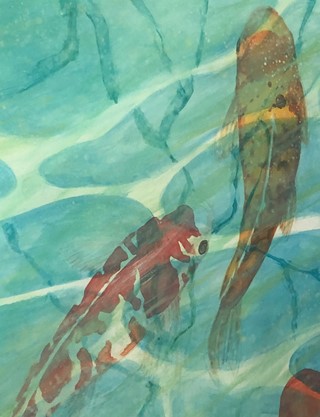TWO-WAY MENTORING
During a particularly compelling episode of Apple TV’s “The Morning Show,” my husband asked, “Who were your mentors?”
I’ve had several mentors through the years; people whose style, work ethic, and acumen I admired and sometimes emulated.
The best mentorships are more like the relationship between a parent and adult child than boss and employee, characterized by mutual respect, trust, and communication.
The first was Betsy Isroelit, who hired me right out of college to work for her advertising agency. Betsy was creative, thoughtful, encouraging, and she gave me a long leash, allowing me to learn by trial and more than a few errors.
Eileen Chambers, the always glamourous, chain-smoking PR executive, introduced me to the worlds of hospitality and luxury. She was frank from day one: “I’ll teach you the ropes, young lady, but at the end of the day, you are still my administrative assistant.” I mastered the fine art of Wite-Out and learned the importance of media relationships, exceptional customer service, and thank-you notes—three “musts” I live by to this day.
A pair of Judy’s—both of whom broke glass ceilings in sports—had very different styles and approaches: I worked for Judy Sweet, UC San Diego’s Intercollegiate Athletic Director and the first woman president of the NCAA, while still in college; years later consulting to the USGA, I worked with Judy Bell, the first woman to serve as that association’s president. Both were full of grit and determination, balanced by a healthy dose of compromise.
Mentoring today appears much more formalized and structured than I remember, including regularly scheduled appointments, check-in calls, “homework” assignments, and established benchmarks. But for mentoring to work, it still requires a serious investment by both parties. And finding the right mentor—or mentee—is not always easy.
But I remain a firm believer in the positive impact mentoring can have and I strongly encourage young people to seek out mentors who align well with their field of interest, career goals, or personality.
I wouldn’t be the person I am—both personally and professionally—were it not for my mentors. Just writing this blog has made me think deeply, and warmly, about my mentoring experiences. It’s also makes me want to up my game as a mentor:
–What traits do I want to teach or emphasize to my mentees?
–What are the key messages and core tenets I want to convey?
–And most of all, how can I help others advance themselves, professionally and personally?
Being a mentor gives me a better understanding of the current workforce, those up and coming in my profession, and the sensibilities of those younger than me. A good mentoring relationship definitely is a two-way street.
If you’ve ever thought about being a mentor, I strongly suggest you give it a try.
